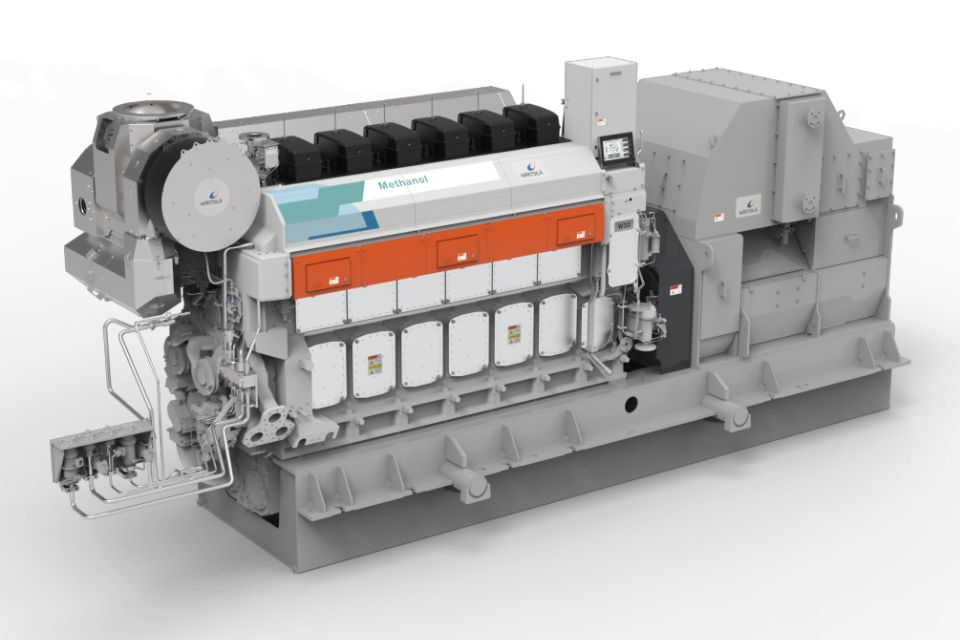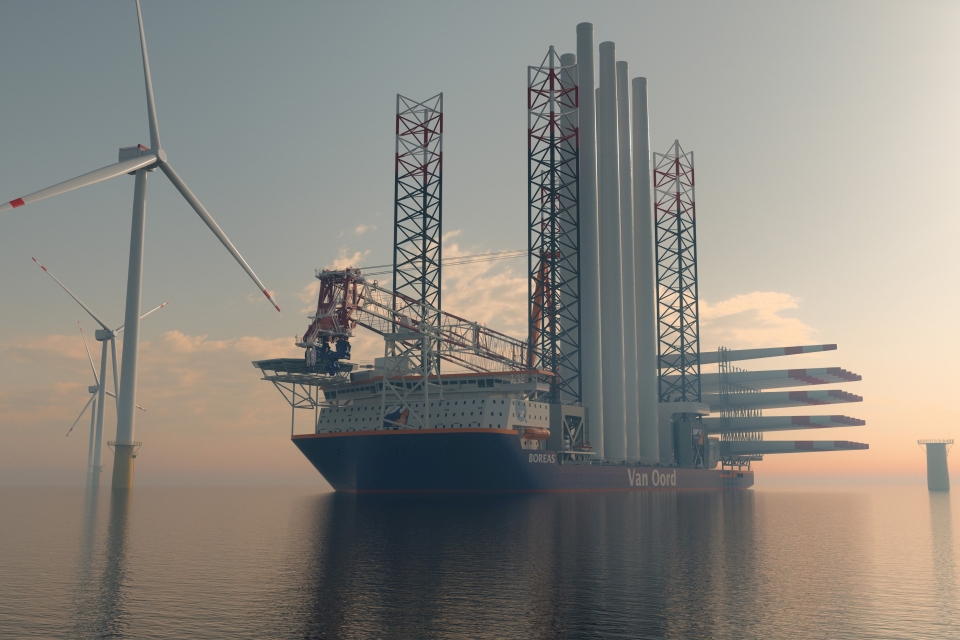The five Wärtsilä 32 Methanol engines that will power Van Oord’s offshore installation vessel Boreas have passed their Factory Acceptance Tests (FATs) and have been handed over to the Yantai CIMC Raffles Shipyard (YCRO) in China. They are now on their way to the shipyard where the mega vessel is currently being built.
The Boreas will be able to transport and install the next generation of 20 MW offshore wind turbines and is expected to be commercially available in 2025.
Van Oord is committed to reducing carbon emissions and to becoming carbon-neutral by 2050, in line with the Paris Agreement. Approximately 95 per cent of Van Oord’s carbon footprint is linked to its fleet. Most progress can therefore be made by investing in decarbonisation of its vessels, as well as in green vessels and alternative fuels.
The Boreas is an example of the energy transition within Van Oord. The vessel is the first of its kind to run on the future fuel methanol. Running on methanol reduced the ship’s carbon footprint by more than 78 per cent.
Also read: Van Oord commits to climate adaptation, the wait is for uptake
Pioneers
The delivery of the methanol engines is a major milestone for the three parties YCRO, Wärtsilä and Van Oord and a result of successful collaboration. It is the first order for newbuild methanol-fuelled engines for Wärtsilä. Van Oord is pleased to be the pioneer of Wärtsilä’s latest methanol-fuelled engine technology.

‘Van Oord is committed to lowering its impact on climate change by reducing our emissions and becoming net-zero,’ says Harold Linssen, Director Ship Management Department at Van Oord. ‘Our equipment roadmap focuses on low-carbon fuels and energy efficiency. We see methanol as one of the alternatives to meet the industry’s goals to reduce its environmental impact. The delivery of these methanol engines is a major achievement and a result of successful collaboration.’
Also read: What Van Oord’s LNG dredger Vox Apolonia looks like up close
Methanol
Methanol is a clear, colourless liquid that is soluble in water and is biodegradable. It comprises four parts hydrogen, one part oxygen, and one part carbon, and is the simplest member of a group of organic chemicals called alcohols. As a marine fuel, methanol has many advantages. Methanol is relatively inexpensive to produce, widely available and easy to store.
Green methanol is an even better choice because of how it’s made. The best option would be E-methanol: produced from hydrogen from renewable-sourced electricity and recaptured carbon, making it carbon neutral. Green methanol is among the potential and most promising future fuel candidates. It is expected that the global supply infrastructure of green methanol will develop substantially.
Also read: Van Oord back in the black in 2022
Heavy-duty jack-up vessel Boreas
Offshore wind is a key contributor to achieving climate change targets around the world. The Boreas, being able to install the next generation of 20 MW offshore wind turbines, is preparing Van Oord for the increase in scale in the offshore wind industry.
The 175-metre long vessel is purpose-built for the transport and installation of foundations and turbines at offshore wind farms. With a top-class crane it can lift more than 3000 tonnes. The Boreas has an advanced jacking system, allowing the vessel to work in waters up to 70 metres deep.
The vessel will be equipped with active emissions control technology (Selective Catalytic Reduction) to reduce NOx emissions to an absolute minimum. A 5000-kWh battery pack can take peak loads and regenerate energy to reduce the fuel consumption (and corresponding emissions) even further.
Also read: VIDEO: Van Oord installs final monopile at Hollandse Kust Noord








